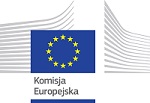Projekt DICTAPLOMACY (The international dimensions of authoritarian regime survival: comparing “dictaplomatic” strategies in post-Soviet Eurasia) bada niezbadany wymiar autorytaryzmu – sposób, w jaki autokraci wykorzystują dyplomację jako narzędzie przetrwania reżimu. Projekt analizuje i porównuje strategie polityki zagranicznej i taktyki „dyktaplomatyczne” idealnych typówreżimów autorytarnych poradzieckiej Eurazji, w celu modelowania mechanizmów, w których dyplomacja jest użyta jako zewnętrzna legitymizacja reżimu i autorytarna konsolidacja.
Dr Anais Marin posiada tytuł doktora nauk politycznych Sciences Po Paris / CERI (2006), gdzie studiowała stosunki międzynarodowe, międzynarodowe prawo publiczne i tranzytologię. Wykładowca studiów rosyjskich na Uniwersytecie Clermont-Ferrand (Francja), tłumaczenia prawnego (oddział genewski Uniwersytetu Moskiewskiego) badań granicznych, z naciskiem na kresy Europy Środkowej i Wschodniej, w Instytucie Aleksanteri (Uniwersytet w Helsinkach). W 2011 roku dołączyła do Fińskiego Instytutu Spraw Międzynarodowych (FIIA, Helsinki), jako specjalista ds. Białorusi w programie EU’s Eastern Partnership and Russia. Wydała kilka prac oraz zleconych analiz politycznych na temat Białorusi, Partnerstwa Wschodniego i polityki Rosji dot. Eurazji, w tym dla Parlamentu Europejskiego.
DICTAPLOMACY investigates an understudied dimension of authoritarianism – the use autocrats make of diplomacy as a tool of regime-survival. The project analyses and compares the foreign policy strategies and “dictaplomatic” tactics of four ideal-typical authoritarian regimes in post-Soviet Eurasia, with the aim of modelling the mechanisms whereby diplomacy serves them for external regime-legitimation and authoritarian consolidation.
DICTAPLOMACY is a multidisciplinary project that combines insights and methods from comparative politics, international relations (IR) theories and foreign policy-making analysis. It elaborates an innovative framework for analysing rogue behaviour in contemporary IR. It departs from the idea that the EU’s democracy-promotion efforts in Eastern Europe require a better understanding of the foreign policy manoeuvres of post-Soviet authoritarian regimes.
DICTAPLOMACY is a policy-relevant project with a strong potential to entail cross-disciplinary fertilisation between scientific research and policy-advocacy work as well, thanks to the researcher’s planned secondment in a think tank.
The project is supported by European Union


